If you want to start streaming your games online or record your gameplay footage to create YouTube videos of your exploits, you'll probably need a capture card.
These nifty little devices take on some of the processing work of streaming and recording gameplay footage, so that your main device - whether that's a console or gaming PC - is free to devote all its power to running the game as smoothly as possible.
While most consoles are able to stream and record footage directly, their capabilities are limited compared to PC, and gameplay performance is likely to suffer. A capture card will help make sure you can get gameplay footage at the highest frame rate and resolution possible, which is pretty much essential for any serious streamer or YouTuber.
A capture device is even more important for Switch owners - the console can only record a few seconds of gameplay by itself, and can't stream at all, so a card is absolutely essential for anyone looking to stream or record lengthy Switch gameplay.
There are a few on the market though, and for the uninitiated, capture cards can be very confusing indeed. Luckily for you, we're here to help - here's our pick of the best capture cards around right now, with buying advice that explains exactly who each card is for.
1. Elgato Game Capture HD60 S
- Designed for 60fps streaming
- Great PC software
- Additional ports
Cons
- Not designed for recording gameplay
$179.95
Most people looking at capture cards are probably hoping to stream footage live to services like Twitch. For them, the Elgato HD60 S is a pretty ideal choice.
Slim and compact, this is a very portable device, ideal for streaming on the go. It's simple looking too: sleek black, with a single slim light bar to show when it's active. Ports are minimal, but cover what you need: HDMI in and out, USB to connect to a PC, and a 3.5mm audio jack so that you can mix in commentary.
Built primarily for streaming, the HD60 S uses USB 3.0 for low-latency transfer at up to 1080p and 60fps - it's seamless enough that you can just about play the game using the streaming computer as a display, without even using a separate TV or monitor, if you have a limited setup.
That comes at a cost though: the HD60 S is a bit ropey at recording footage, so we wouldn't recommend it if that's your priority. It can record footage, but you might have to drop the resolution and frame rate to keep things smooth, which might be too much of a cost for some.
The HD60 S comes with the Elgato Game Capture software, which is by a long way the most simple and user-friendly capture software around, though lacking some of the in-depth features of rivals. It blows Razer Cortex out of the water though.
Still, it's ideal for anyone new to this tech, which makes the HD60 S our recommendation for any streaming newbies, and will be more than enough for most users. For the rest, the HD60 S is also compatible with OBS and XSplit.
2. Elgato Game Capture HD60 Pro
- Internal card, no need for external accessories
- Elgato Game Capture software
- Easy to use
Cons
- Need to install inside a desktop PC
- Can only record capture from your PC
And now for something completely different. Well, a little bit different. Despite the similar name, the HD60 Pro is a rather different proposition: this is an internal card, which connects to a PCIe slot inside your computer.
Obviously that means it's only useful if you have one specific desktop PC that you want to use for capturing footage, and if you're comfortable opening it up for installation (or know someone who is). Naturally that makes it a hell of a lot less portable, and also pretty limiting for capturing console footage unless you keep your desktop in the living room.
That means that this is really only the ideal choice for anyone with a single souped-up desktop gaming rig that they want to use to simultaneously game on and capture the footage, without the massive performance hit that would usually entail.
Bear in mind though, there will still be some performance hit - this thing can't entirely offload all of the processing labour of footage capture, but it will pick up a fair bit of the slack, leaving your CPU and GPU to focus on running the game as well as possible.
Given the nature of the setup, the performance really depends on your computer (which is technically true of all the cards, but much more so here), though it should generally be capable of recording at 1080p@60fps, with pretty similar streaming performance.
As with the other Elgato cards, it comes with the company's own Game Capture software, but is also compatible with third-party alternatives.
3. StarTech USB-C Capture Device
- Plug-and-play on PC, Mac & Linux
- Easy to use
- Great for streaming & recording
Cons
- Expensive
- StreamCatcher app is basic
$284.99
Elgato's options are great, but you have to decide pre-purchase whether to prioritise streaming or recording. Why can't you have both? Thankfully, StarTech's UVC USB-C capture device offers impressive performance with both streaming and recording, though it comes at a premium.
The device offers 1080p@60fps capture via HDMI, and if you don't have a USB-C port on your computer, the capture card also comes with a USB-A 3.0 cable for high-speed transfer. The device itself is sturdy, made of metal compared to the plastic body of other capture cards in our roundup, and also features a line-in port for no-fuss voiceovers.
Aside from the ability to record and livestream gameplay flawlessly, which it does, the highlight of StarTech's capture device is UVC, a video standard that is compatible not only with Windows and Mac, but Linux too, offering plug-and-play support without needing to download third-party software (although there is software on offer for Windows users).
As well as offering native support for a range of operating systems, the benefit of using UVC is that it's compatible with a wide range of livestreaming software, from Streamlabs OBS to XSplit Broadcaster. That's a good thing, too, seeing as the bundled StreamCatcher app for Windows is a little basic. It'll do the job for recording, but for livestreaming, third-party software is the way forward.
Is it worth the price? If you're in need of a versatile device that'll work with almost any platform and capture software on offer, then yes, but there are cheaper options available if you focus on either streaming or recording.
4. Razer Ripsaw HD
- Slimline form factor
- Additional ports
- 4K Passthrough
Cons
- Razer Synapse software is janky
- Requires in-depth setup
$159.99
The Razer Ripsaw HD is a streamlined version of the previous Ripsaw that strips a few features out in favour of a simpler approach.
With that in mind, the ports are simple: HDMI in and out, USB-C to connect to your PC (and draw power from it), audio in to add a microphone to the mix, and audio out for headphones.
Pair that with the simple, sleek design and high quality cables (one HDMI, USB-A to USB-C, and 3.5mm audio lead) and the Razer feels like an undeniably premium proposition, just as you'd expect.
Streaming and recording run at up to 1080p and 60fps, but the HDMI passthrough still delivers 4K, so your own video quality doesn't need to be compromised by your stream.
So what's the catch? Software. Razer's Synapse hub is still flaky at the best of times, and it's a touch and go proposition getting the Ripsaw HD recognised by OBS and XSplit. I had problems getting it up and running, and it doesn't take much digging around to find all sorts of different issues, most driven one way or another by the Synapse drivers.
Razer's pitch for Ripsaw has always been plug-and-play, but in reality it's not as simple as that. Once you can get it going, the Ripsaw HD is great, but expect to find your first couple of hours diving in and out of settings menus to get it there.
5. ClonerAlliance Flint 4KP
- 4K Passthrough
- Multiple ports
- Dedicated audio monitoring
Cons
- Expensive
- 4K Passthrough limited to 30fps
- Basic PC software
$149.99
While the look of a game capture card doesn’t really contribute to its performance, we do think that the Flint 4KP is amongst the better-looking cards in our chart right now. It sports a square shape with rounded edges, otherwise known as squircle, with an eye-catching red-and-black colour scheme and plenty of ports for you to take advantage of.
More specifically, the Flint 4KP features separate line-in and mic inputs, allowing you to add a second audio feed to your stream, and a line-out port to listen to the live mix as it happens. You’ll also find a USB-C port for ultra-fast data transfer, along with a variety of dongles and cables to make it compatible with a range of systems, and two HDMI 2.0 ports.
Yes, that’s right, HDMI 2.0. While the Flint 4KP only offers the ability to record and stream gameplay at up to 1080p@60fps, it also offers 4K@30fps passthrough, allowing you to keep the capture card set up – even when you’re not streaming – without having to sacrifice overall resolution. The catch is that it doesn’t support 60fps passthrough at 4K - for that you'll need to jump to the slightly pricier Flint 4KP Plus.
The Flint 4KP focuses on recording gameplay, and that’s evident via the bundled software that comes with the kit. It provides a basic way for users to locally record gameplay footage from PC, console or even smartphones, and those that want to stream can use third-party software like OBS or Streamlabs.
6. Nix Capture Card
- Affordable
- Great for 1080p streaming
- Simple setup
Cons
- No software
- Slight colour difference in captured content
- No 3.5mm jack for commentary
$99.95
Nix is the latest creation from accessory maker Plugable, and looks to offer the same streaming and recording capabilities as the Elgato range but in a smaller, more budget-friendly package.
Housed in aluminium, the Nix Capture card is a compact, portable device with a simplistic design; there are no buttons or screens, just an LED light to indicate status along with HDMI and USB-A ports to connect the capture kit to your PC or console setup. There isn’t a 3.5mm jack to directly mix in commentary from your mic, but this is easy enough to set up via the streaming software of your choice and, in our opinion, is the better option for streamers.
Like the HD60 S, the Nix utilises USB 3.0 for low-latency transfer at up to 1080p@60fps and is more focused on the streaming aspect of online gameplay rather than recording, but you’re still able to record footage to your hard drive to share with friends and fans on social media. We have noticed a bit of colour difference, but this is easily corrected via most third-party streaming software.
The good news is that the USB 3.0 support means that there’s basically zero delay, allowing you to use the stream preview on your PC as the main display in space-limited environments.
Unlike other options in our chart, the Nix Capture Card doesn’t come with any bundled software to kickstart your streaming career, but compatibility with popular third-party options like OBS, Streamlabs and XSplit Gamecaster across PC, Mac and Linux means you won’t struggle to find great, free streaming software to use.
How to use a capture card
Now you've seen our top picks, let's briefly run down exactly how a capture card works. Most of them are external devices that need to be connected to a PC or Mac in order to capture or stream footage, while taking footage from the gameplay machine (be it a gaming PC or console) via HDMI.
So, for example, if you want to stream from a PS4 you'd run an HDMI console from the console to the capture device, with another going from the card back out to your TV, so you can still see what you're playing.
The card then connects to a PC or Mac via USB, where you use your choice of capture software to record the footage or stream it to sites like Twitch, YouTube Gaming, or even Facebook.
If you want to get footage from a gaming PC, the process is much the same, but bear in mind that an external card only really helps if want to play on one PC and record/stream from another (say, a laptop).
If you want to do everything from one PC you either need to buy an internal capture card (which we also cover here) or just skip the capture card entirely and do without, at a hit to your performance.

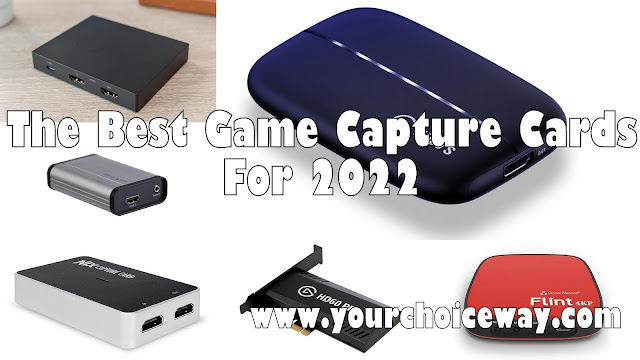

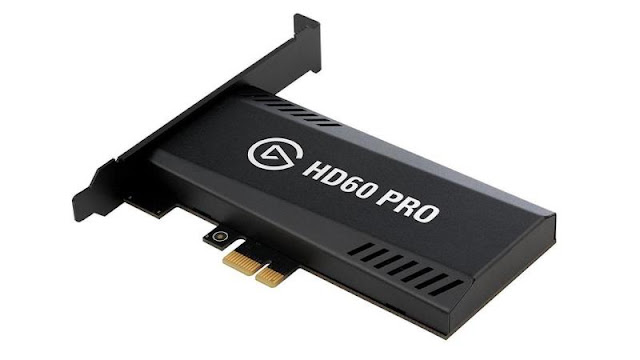


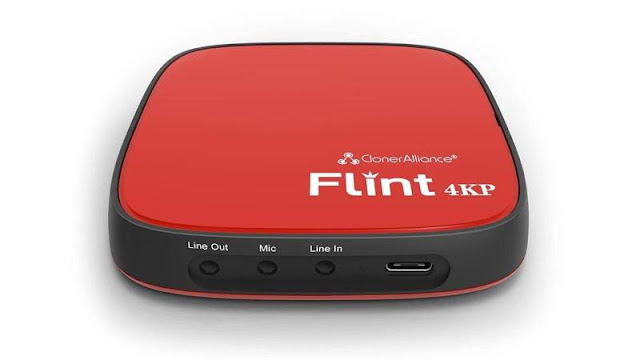
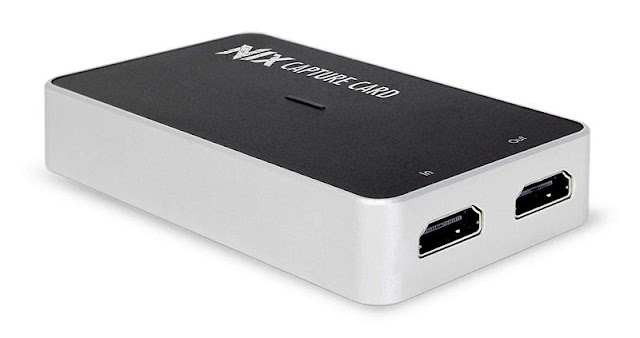



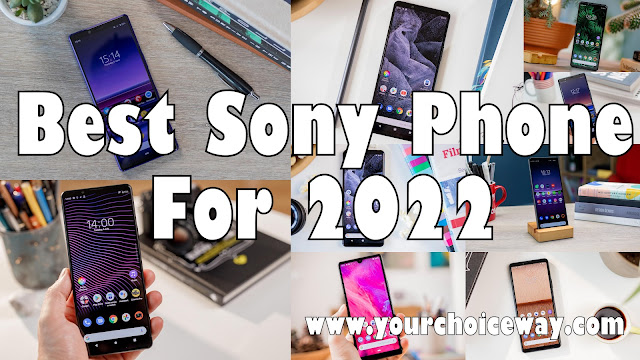

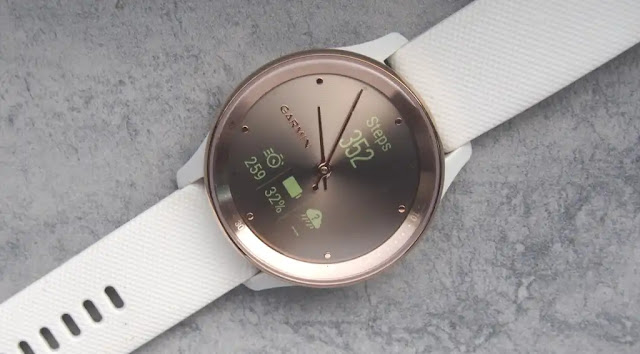
%20Review.webp)







0 comments:
Post a Comment